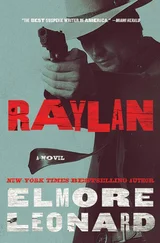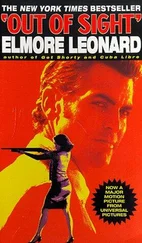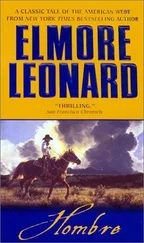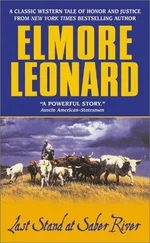Elmore Leonard - Valdez Is Coming
Здесь есть возможность читать онлайн «Elmore Leonard - Valdez Is Coming» весь текст электронной книги совершенно бесплатно (целиком полную версию без сокращений). В некоторых случаях можно слушать аудио, скачать через торрент в формате fb2 и присутствует краткое содержание. Жанр: Вестерн, на английском языке. Описание произведения, (предисловие) а так же отзывы посетителей доступны на портале библиотеки ЛибКат.
- Название:Valdez Is Coming
- Автор:
- Жанр:
- Год:неизвестен
- ISBN:нет данных
- Рейтинг книги:4 / 5. Голосов: 1
-
Избранное:Добавить в избранное
- Отзывы:
-
Ваша оценка:
- 80
- 1
- 2
- 3
- 4
- 5
Valdez Is Coming: краткое содержание, описание и аннотация
Предлагаем к чтению аннотацию, описание, краткое содержание или предисловие (зависит от того, что написал сам автор книги «Valdez Is Coming»). Если вы не нашли необходимую информацию о книге — напишите в комментариях, мы постараемся отыскать её.
Valdez Is Coming — читать онлайн бесплатно полную книгу (весь текст) целиком
Ниже представлен текст книги, разбитый по страницам. Система сохранения места последней прочитанной страницы, позволяет с удобством читать онлайн бесплатно книгу «Valdez Is Coming», без необходимости каждый раз заново искать на чём Вы остановились. Поставьте закладку, и сможете в любой момент перейти на страницу, на которой закончили чтение.
Интервал:
Закладка:
What difference did it make who the man was? The man wasn’t following him. The man was riding southeast from the St. David road and must have left the road not far back to cut cross-country toward Mimbreno maybe, or to a village across the border. Sure, it could be one of Tanner’s men. You can ride in with him, Valdez thought, and smiled at the idea of it. He would see who it was and maybe he would come out of the pines, giving the man some warning first, or maybe he wouldn’t.
Now, as the man drew nearer, for some reason he was sure it was one of the Maricopa riders: the slouched, round-shouldered way the man sat his saddle, the funneled brim of his hat bobbing up and down with the walking movement of the horse.
Maybe he had known all the time who it was going to be. That was a funny thing. Because when he saw it was R. L. Davis, looking at the ground or deep in thought, the stringy, mouthy one who thought he was good with the Winchester, Valdez was not surprised, though he said to himself, Goddam. How do you like that?
He let him go by, up over the rise and out of sight, while he stayed in the pines to shape a cigarette and light it, wondering where the man was going, curious because it was this one and not someone else, and glad now of the habit that had made him look around when he did. He was sure the man had not been following him. The man would have been anxious and looking around and would have stopped before he topped the rise. But the question remained, Where was he going?
When Valdez moved out, keeping to the trees over the crest of the rise, he hung back and let the distance between them stretch to a hundred yards. He followed R. L. Davis this way for several miles until the trail came to open grazing land, and as R. L. Davis crossed toward the scrub trees and hills beyond the flats, a column of dust came down the slope toward him.
You look around, Bob Valdez thought. That habit stays with you. But you don’t bring the field glasses.
He remained in the cover of the trees and, in the distance, watched three riders meet R. L. Davis and stand close to him for some time, forming a single shape until the group came apart and the riders, strung out now, one in front of Davis and two behind, rode with him into the deep shadow at the base of the far hills. He saw them briefly again up on the slope and at the crest of the hill.
They wonder about him too, Valdez thought. What do you want? Who do you want to see? They ask questions and take their jobs very seriously because they feel they’re important. They should relax more, Valdez thought. He mounted the claybank again and rode out into the sunlight, holding the horse to a walk, keeping his eyes on the slope the riders came down and wondering if they had left someone there to watch.
No, they did it another way. One of them who had been with R. L. Davis came back. When Valdez was little more than halfway up the trail, following the switchbacks that climbed through the brush, he saw the mounted rider waiting for him, his horse standing across the trail.
As Valdez came on, narrowing the distance between them, he recognized the rider, the Mexican who had brought him into the yard of the stage station.
“Far enough,” the Mexican said. He held a Winchester across his lap, but did not raise it. He studied Valdez, who reined in a few feet from him. “You come back again.”
“I didn’t finish talking to him,” Valdez said.
“I think he finish with you, though.”
“Let’s go ask him.”
“Maybe he don’t want to see you,” the Mexican said.
“It’s about money again.”
“You said that before. For the woman. He don’t care anything about the woman.”
“Maybe this time when I tell him.”
“What do you have on you?”
“Nothing.” Valdez raised his hands and dropped one of them to the stock of Diego Luz’s rifle in its leather boot. “Only this.”
“That could be enough,” the Mexican said.
“You want it?” Valdez smiled. “You don’t trust me?”
“Sure, I trust you.” The Mexican raised the Winchester and motioned Valdez up the grade. “But I ride behind you.”
Valdez edged past him up the trail and kept moving until he reached the top of the slope. Now he could see the village of Mimbreno across the valley, a mile from them beyond open land where Tanner’s cattle grazed. Valdez had been to this village once before, the day after White Mountain Apaches had raided and killed three men and carried off a woman and burned the mission church. He remembered the blackened walls; the roof had collapsed into the church and the beams were still smoking. He remembered the people in the square when they rode in, the people watching the Apache scouts and company of cavalry and saying to themselves, Why weren’t you here yesterday, you soldiers? What good are you?
As they crossed the grazing land Valdez recognized the church, the roofless shell that had never been repaired. It stood at the end of the single street of adobes where the street widened into a square and there was a well with a pump and a stone trough for watering the horses. Beyond the cluster of buildings was a stand of cottonwood trees and a stream that came down out of the high country to the east. Valdez saw the women in the trees, some of them walking this way carrying baskets of clothes. Then he was entering the street, the Mexican next to him now, with the dogs barking and the smell of wood fires, seeing the freight wagons along the adobe fronts and more horses than would ever be in a village this size. It was a village preparing to make war. It was a military camp, the base of a revolutionary army. Or the base of a heavily armed scouting force that would stay here until they were driven out. But at the same time it was not a village. Yes, there were people. There were women among the armed men, women in front of the adobes and a group of them at the well with gourds and wooden pails. But there were no children; no sound of children nor a sign of children anywhere.
“He’s there waiting for you,” the Mexican said.
Valdez was looking at the church. A gate of mesquite poles had been built across the arched opening of the doorway, and there were horses penned inside the enclosure. He felt the Mexican close to him, moving him to the east side of the square, to the two-story adobe with the loading platform across the front, the building that had been the village’s general store and mill and grain warehouse.
Frank Tanner stood at the edge of the loading platform looking down at a group of riders, standing over them with his hands on his hips. A woman was behind him near the open doorway, not a Mexican woman, a blond-haired woman, golden hair in the sunlight hanging below her shoulders to the front of her white dress. Valdez looked at the woman until they were close to the platform and the riders sidestepped their horses to let the Mexican in, Valdez holding back now; and as they moved in among the riders he saw that one of them was the segundo. He saw R. L. Davis, then, mounted on a sorrel next to the segundo. He didn’t look at Davis, who was watching him, but up at Tanner now, the man so close above him that he had to bend his head back, feeling awkward and unprotected and foolish with the woman watching him, to look at Tanner.
Tanner stared down at Valdez as if this would be enough, no words necessary. Valdez did not want to smile because he knew he would feel foolish, but he eased his expression to show he was sincere and had come here as an honest man with nothing to hide.
He said, “I’d like to talk to you once more.”
“You’ve talked,” Tanner said. “You get one time and you’ve had yours.”
Maybe he was joking, so Valdez smiled a little bit now, though he didn’t want to smile with the woman watching him. “I know you’re a busy man,” he said, “but you must be a fair man also, uh? I mean you have all these people working for you. You recognize the worth of things and pay a just wage. A man like that would also see when someone is owed something.”
Читать дальшеИнтервал:
Закладка:
Похожие книги на «Valdez Is Coming»
Представляем Вашему вниманию похожие книги на «Valdez Is Coming» списком для выбора. Мы отобрали схожую по названию и смыслу литературу в надежде предоставить читателям больше вариантов отыскать новые, интересные, ещё непрочитанные произведения.
Обсуждение, отзывы о книге «Valdez Is Coming» и просто собственные мнения читателей. Оставьте ваши комментарии, напишите, что Вы думаете о произведении, его смысле или главных героях. Укажите что конкретно понравилось, а что нет, и почему Вы так считаете.












